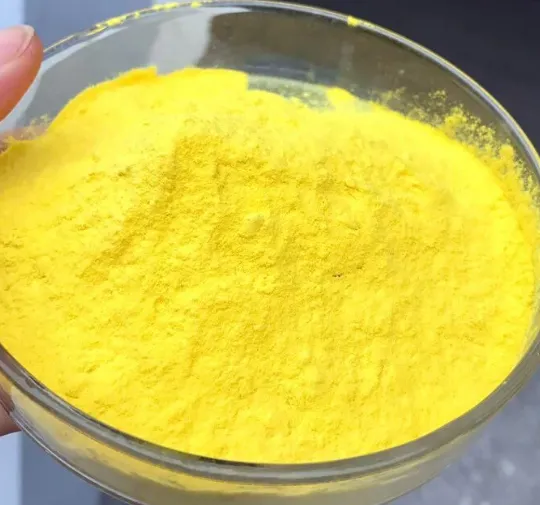Warning: Undefined array key "title" in /home/www/wwwroot/HTML/www.exportstart.com/wp-content/themes/1198/header.php on line 6
Warning: Undefined array key "file" in /home/www/wwwroot/HTML/www.exportstart.com/wp-content/themes/1198/header.php on line 7
Warning: Undefined array key "title" in /home/www/wwwroot/HTML/www.exportstart.com/wp-content/themes/1198/header.php on line 7
Warning: Undefined array key "title" in /home/www/wwwroot/HTML/www.exportstart.com/wp-content/themes/1198/header.php on line 7
- Afrikaans
- Albanian
- Amharic
- Arabic
- Armenian
- Azerbaijani
- Basque
- Belarusian
- Bengali
- Bosnian
- Bulgarian
- Catalan
- Cebuano
- China
- China (Taiwan)
- Corsican
- Croatian
- Czech
- Danish
- Dutch
- English
- Esperanto
- Estonian
- Finnish
- French
- Frisian
- Galician
- Georgian
- German
- Greek
- Gujarati
- Haitian Creole
- hausa
- hawaiian
- Hebrew
- Hindi
- Miao
- Hungarian
- Icelandic
- igbo
- Indonesian
- irish
- Italian
- Japanese
- Javanese
- Kannada
- kazakh
- Khmer
- Rwandese
- Korean
- Kurdish
- Kyrgyz
- Lao
- Latin
- Latvian
- Lithuanian
- Luxembourgish
- Macedonian
- Malgashi
- Malay
- Malayalam
- Maltese
- Maori
- Marathi
- Mongolian
- Myanmar
- Nepali
- Norwegian
- Norwegian
- Occitan
- Pashto
- Persian
- Polish
- Portuguese
- Punjabi
- Romanian
- Russian
- Samoan
- Scottish Gaelic
- Serbian
- Sesotho
- Shona
- Sindhi
- Sinhala
- Slovak
- Slovenian
- Somali
- Spanish
- Sundanese
- Swahili
- Swedish
- Tagalog
- Tajik
- Tamil
- Tatar
- Telugu
- Thai
- Turkish
- Turkmen
- Ukrainian
- Urdu
- Uighur
- Uzbek
- Vietnamese
- Welsh
- Bantu
- Yiddish
- Yoruba
- Zulu
Nov . 10, 2024 21:41 Back to list
Effects of Aspartame on Metabolism and Health in the Human Body
Understanding Aspartame in the Body
Aspartame, a low-calorie artificial sweetener, has been a topic of much discussion and research since its approval by the U.S. Food and Drug Administration (FDA) in 1981. It is commonly found in a variety of products, ranging from diet sodas and sugar-free snacks to medications and oral care products. The growing prevalence of aspartame in our food supply raises important questions about its metabolism and effects on health.
What is Aspartame?
Aspartame is a dipeptide composed of two amino acids phenylalanine and aspartic acid. Upon ingestion, aspartame is broken down by the enzymes in the digestive system into its constituent amino acids and methanol. This process leads to a significant reduction in caloric intake, making it an attractive option for those seeking to manage their weight.
Once aspartame is consumed, it is rapidly absorbed by the gastrointestinal tract. The body metabolizes it, releasing the individual amino acids into the bloodstream, which can then be utilized for various bodily functions. Phenylalanine is particularly important, as it is a precursor for neurotransmitters such as dopamine and norepinephrine. However, individuals with phenylketonuria (PKU), a rare genetic disorder, must avoid aspartame since they cannot metabolize phenylalanine effectively.
The Metabolism of Aspartame
The metabolism of aspartame begins in the stomach, where it is broken down into methanol, phenylalanine, and aspartic acid. Methanol is further processed into formaldehyde and then formic acid, both of which are eliminated from the body. At the concentrations typically consumed from food products, the levels of methanol are considered safe and do not pose a health risk.
aspartame in the body

Research indicates that after consumption, aspartame is metabolized efficiently, with minimal residual aspartame detected in the bloodstream. This rapid breakdown ensures that the sweetener does not accumulate in the body. For most people, moderate consumption of aspartame is considered safe, as established by numerous health agencies, including the FDA, the European Food Safety Authority (EFSA), and the World Health Organization (WHO).
Health Concerns and Myths
Despite its widespread use and extensive research supporting its safety, aspartame continues to attract controversy. Many claims regarding the potential adverse effects of aspartame, such as links to cancer, neurological disorders, and weight gain, have been thoroughly investigated. Comprehensive reviews of the available scientific literature have consistently found no causal relationship between aspartame consumption and these health issues in humans.
However, individuals who consume aspartame may experience sensitivity to it, with symptoms ranging from headaches to gastrointestinal discomfort. Such reactions are typically rare and may depend on individual factors. Consumers are encouraged to monitor their body's responses and adjust their intake accordingly.
Conclusion
In conclusion, aspartame is a widely used artificial sweetener that is metabolized efficiently by the body. Its components—phenylalanine and aspartic acid—play crucial roles in various physiological processes. While some individuals may experience sensitivities, the overall body of scientific evidence supports aspartame's safety for the general population when consumed within established guidelines.
As consumers, it is vital to inform ourselves and make educated decisions about the products we choose to include in our diets. Whenever new research emerges, it is essential to evaluate it critically to distinguish between scientifically-supported information and unfounded claims. Aspartame, when used appropriately, can be a helpful tool for reducing caloric intake while still allowing for a sweet taste in food and beverages, thereby assisting in weight management efforts. For those without metabolic disorders like PKU, aspartame remains a safe and effective option in the realm of artificial sweeteners.
Latest news
-
Certifications for Vegetarian and Xanthan Gum Vegetarian
NewsJun.17,2025
-
Sustainability Trends Reshaping the SLES N70 Market
NewsJun.17,2025
-
Propylene Glycol Use in Vaccines: Balancing Function and Perception
NewsJun.17,2025
-
Petroleum Jelly in Skincare: Balancing Benefits and Backlash
NewsJun.17,2025
-
Energy Price Volatility and Ripple Effect on Caprolactam Markets
NewsJun.17,2025
-
Spectroscopic Techniques for Adipic Acid Molecular Weight
NewsJun.17,2025

